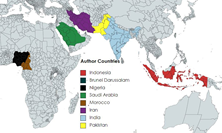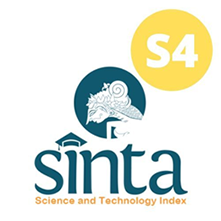Design of Incu Analyzer for IOT based Baby Incubator Calibration (Chamber Temperature)
Abstract
Incubator Analyzer is a calibration tool used to measure temperature, mattress temperature, humidity, airflow, and sound level in baby incubators. The purpose of this research is to make a tool "Design of Incu Analyzer for IOT based Baby Incubator Calibration (Chamber Temperature)” with LCD display and Thingspeak. The design of this calibration tool consists of baby incubator chamber temperature parameters consisting of 5 points, namely T1, T2, T3 , T4, T5 using the DS18B20 sensor and using the ESP32 microcontroller to take advantage of the IOT system. Utilization of IOT on ESP32 is using Wi-Fi. The ESP32 microcontroller processes data from the DS18B20 temperature sensor which is then displayed on the LCD display and Thingspeak. Testing of this tool is done by comparing incubator analyzer module with a standard measuring instrument, INCU II. In this study, the temperature parameter obtained the smallest error value of -0,059293% at T5 with a setting temperature of 36°C and the largest error value of -0,0254188% at T2 with a setting temperature of 35°C. Overall the conclusions obtained after carrying out the literature study process, and planning, it can be concluded that the tool "Incu Analyzer Design for IOT based Baby Incubator Calibration" can be used according to the plan, namely Incubator Analyzer with IOT based.

This work is licensed under a Creative Commons Attribution-ShareAlike 4.0 International License.
Authors who publish with this journal agree to the following terms:
- Authors retain copyright and grant the journal right of first publication with the work simultaneously licensed under a Creative Commons Attribution License that allows others to share the work with an acknowledgement of the work's authorship and initial publication in this journal.
- Authors are able to enter into separate, additional contractual arrangements for the non-exclusive distribution of the journal's published version of the work (e.g., post it to an institutional repository or publish it in a book), with an acknowledgement of its initial publication in this journal.
- Authors are permitted and encouraged to post their work online (e.g., in institutional repositories or on their website) prior to and during the submission process, as it can lead to productive exchanges, as well as earlier and greater citation of published work (See The Effect of Open Access).











